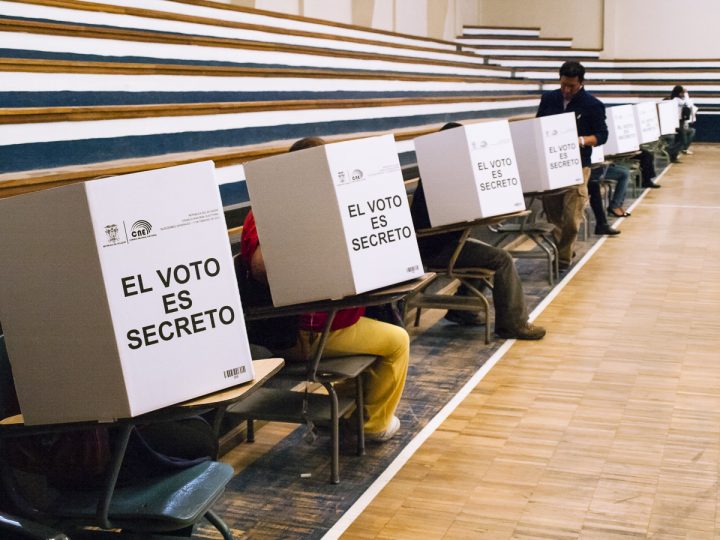A little over 13 million Ecuadorans are electing this Sunday a new President, renewing the 137-seat National Assembly and choosing lawmakers for the Andean Parliament.
There are 16 presidential candidates in the ballots, though according to recent polls, there are three favorite hopefuls to replace outgoing president Lenin Moreno:
Andres Arauz who is supported by former president Rafael Correa, environmentalist Yaku Perez, from indigenous origin, and representing the right-wing Guillermo Lasso.
The new president will be sworn in on May 24 for a five-year term, until 2025. Some 2,540 national observers and 260 international seers will be watching over the voting in 936 polling stations and the ballot counting.
To win in the first round, a candidate should get over 50% of the ballots, or 40% with a 10 point lead over the forerunner. A runoff is slated for April 11.
Whoever wins the voting will face a daunting challenge of reconstructing an indebted economy that fell -9%, increasing poverty, pegged at 38%, growing unemployment and social agitation.
The elections are atypical this time as they take place in the middle of the fight to stop the advance of the Covid-19 in this Andean country, where the number of cases already reaches 255,412.
Prisoners and disable people already voted on Thursday, where an electoral campaign ban was imposed.
Members of the Espacio Futuro group, promoted by the Latin American Strategic Center for Geopolitics (Celag), urged international organizations and observers to oversee the process and respect the people’s will.










